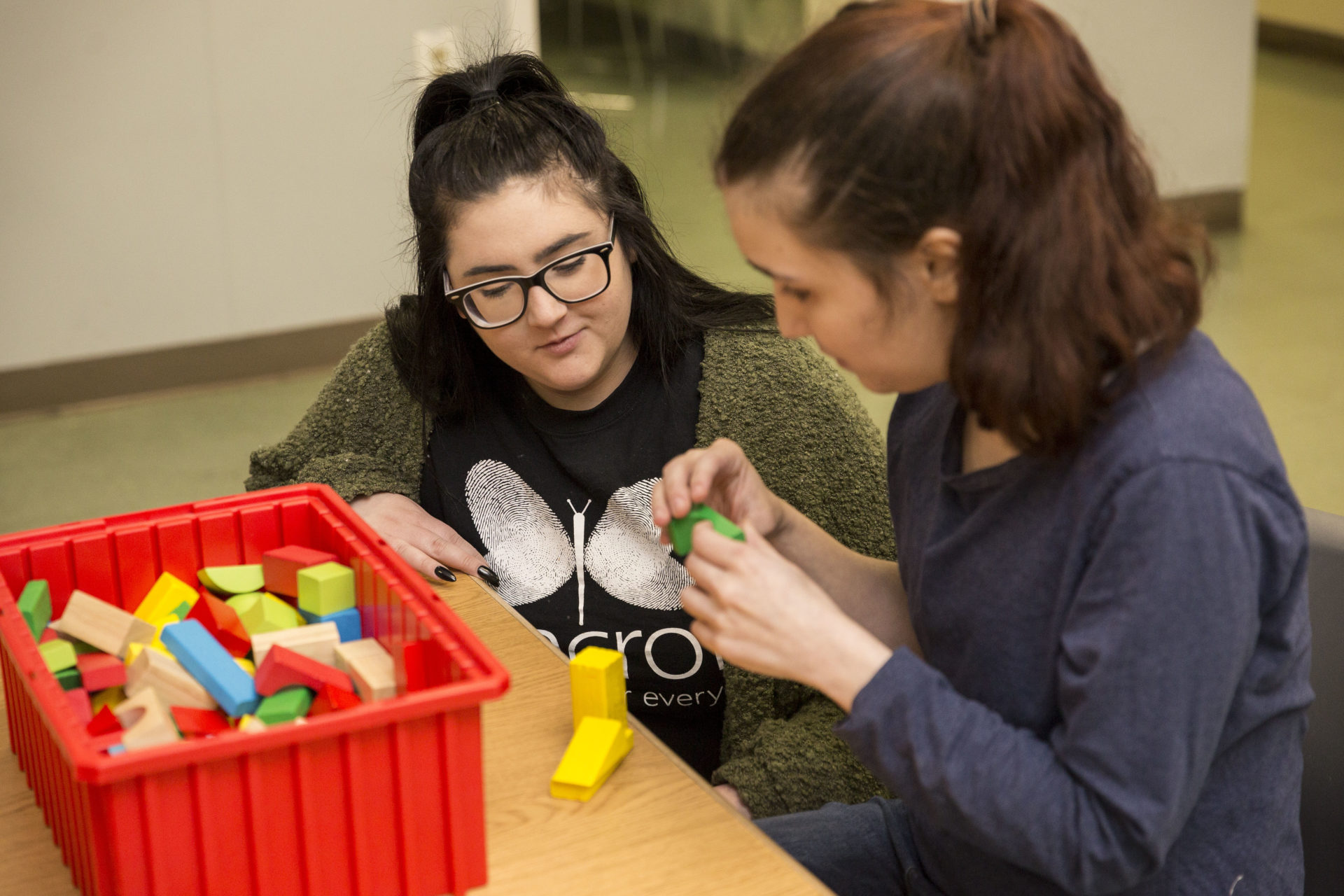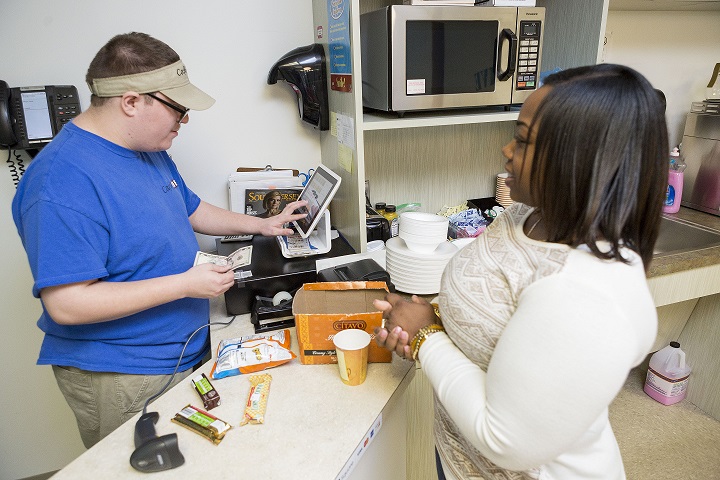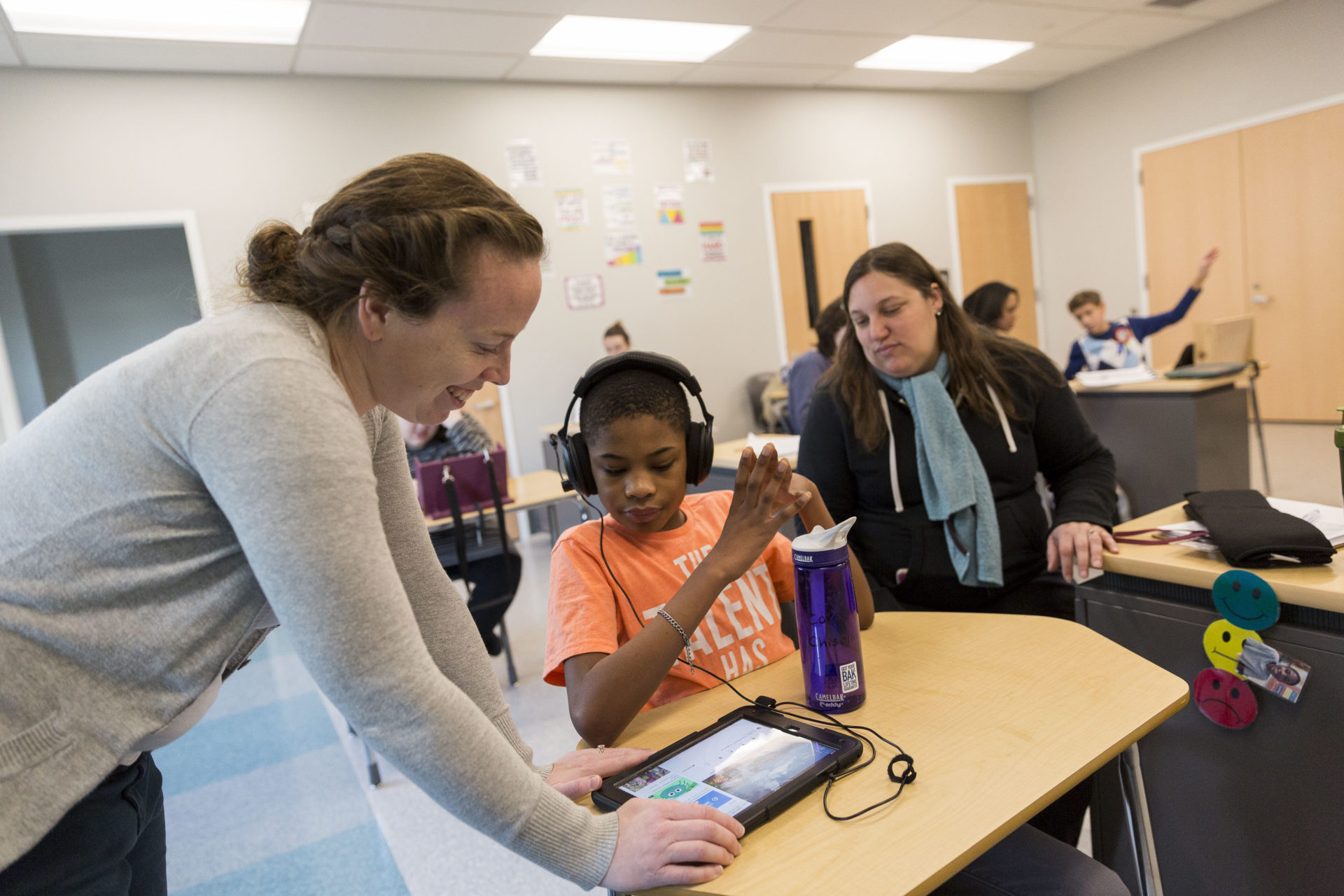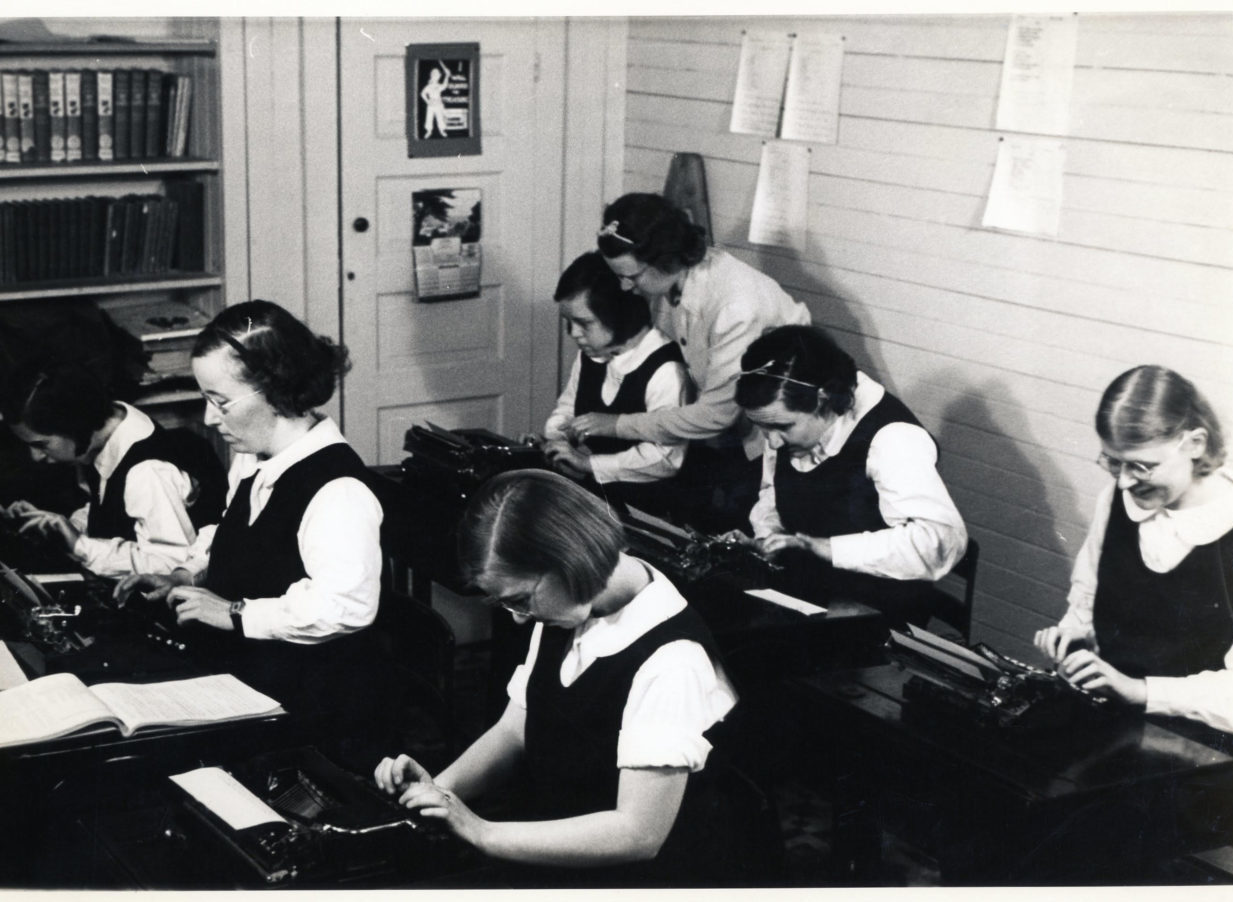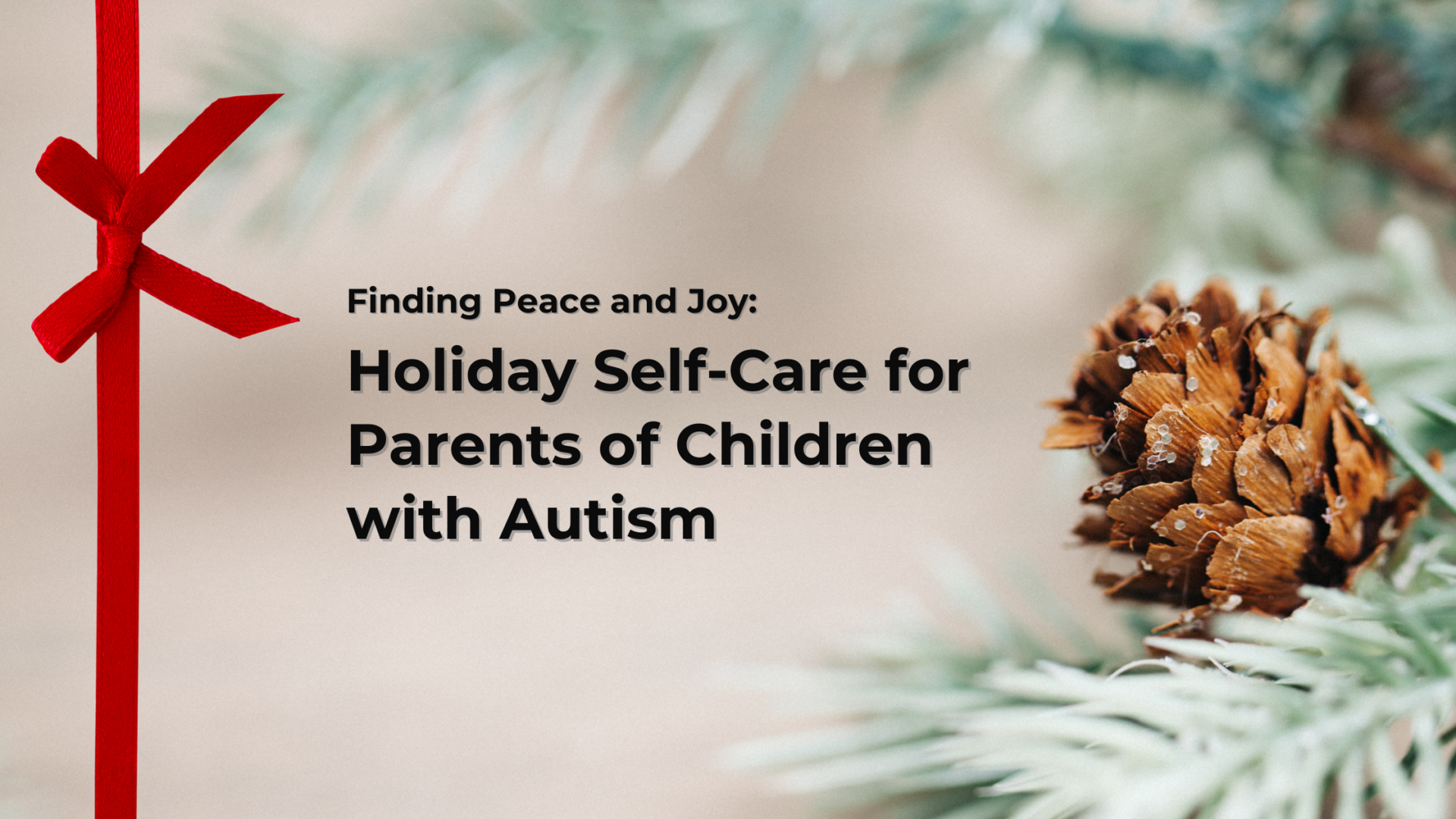By Misty Simmons-McCrosson, LSW, Director of Social Work
The holiday season is a time for joy, traditions, and spending quality time with friends and family. However, the holidays can also make you feel stressed out and overwhelmed. If you’re the parent of a child with autism, you might feel like you’re juggling more than most—between sensory overload, changes in routine, and family expectations, it’s easy to feel stretched thin.
The Struggles You Face Are Real
Holiday lights may be beautiful, but for your child, they might mean sensory overload. Family gatherings might seem festive, but the noise, the hugs, the unpredictable energy can be too much for your child. Maybe you’re spending every moment preparing for meltdowns, managing expectations, and wondering if it’s worth attending events at all.
Then there’s the pressure. Pressure to create magical moments. Pressure to explain your choices to relatives who don’t quite “get it.” Pressure to keep going, even when you’re exhausted.
If that’s where you are, let me remind you: it’s okay to feel overwhelmed. It’s okay to grieve the loss of a “typical” holiday experience. It’s okay to step back and do what’s right for your family. You are doing the best you can in circumstances that many others don’t understand, and that in itself is remarkable.
This holiday season, I want to encourage you to do something that can feel impossible when your days are full—take care of yourself.
You might be thinking, “I don’t have time for self-care!” To which I respond, “Yes, you do!” Self-care doesn’t have to be a grand gesture; it can be small, meaningful actions that help you feel supported and restored.
Think of it like draining a bathtub. Each act of self-care relieves the pressure and keeps the bathtub from overflowing and flooding you with more stress than you can handle.
Self-Care Starts Small
Here are some practical, manageable ways to nurture yourself this season:
1. Create a Calm “Corner”
When holiday events are unavoidable, designate a quiet, sensory-friendly space for you and your child. Bring noise-canceling headphones, favorite toys, or weighted blankets. For yourself, pack a book, soothing music, or even a small craft project. Knowing there’s a place to retreat can make big gatherings feel less daunting.

2. Say No Without Guilt
Give yourself permission to decline invitations or leave events early. If it helps you, practice a simple script: “Thanks so much for having us. This year, we’re keeping things low-key to support [child’s name] and our family.” You don’t owe anyone a justification.

3. Keep Traditions Simple
Instead of tackling every holiday tradition, pick one or two that feel achievable. Maybe that’s watching a holiday movie at home or decorating cookies together. Focus on traditions that bring joy rather than checking every box.

4. Lean on Your Support System
Whether it’s a spouse, friend, or an online community, let someone in your life know how you’re feeling. A quick venting session or a supportive text exchange can work wonders. You’re not a burden for needing help. Let others be there for you; they genuinely want to help.

5. Build in Moments for You
Self-care doesn’t have to be a day at the spa, although if you can swing it, I highly recommend it! An act of self-care can be as simple as five minutes of deep breathing, a walk in a nearby park, or savoring a cup of tea or hot chocolate after the kids go to bed.

6. Celebrate Your Wins
When the day feels hard, remind yourself of the victories—big or small. Maybe your child tried a new food, or you successfully navigated a meltdown at the store. Maybe it’s enough that you made it through the day. You are achieving so much, even if it doesn’t always feel that way.

7. Be Kind to Yourself
Give yourself grace when things don’t go as planned. Practice self-compassion and make sure that how you talk to yourself in the hard moments is how you would talk to your best friend or child.

Final Thoughts
As a parent of a child with autism, it’s normal to worry that they’ll miss out on the magic of the holiday season. But the true magic of the holidays isn’t about how many traditions you complete, how perfect your table looks, or how many lights adorn your house. It’s about the moments of connection, love and joy–whatever that looks like for you and your family.

About the Author
Misty Simmons-McCrosson is a Senior Social Worker at the Bancroft School and provides support services to education and residential programs. Ms. Simmons is a Licensed Social Worker in the state of New Jersey and is a New Jersey Certified School Social Worker.
Ms. Simmons has worked individuals with developmental disabilities and their families since 2000. Ms. Simmons began her career in the Lindens program and held both leadership and clinical roles. Upon receiving her Master’s Degree in Social Work from Rutgers University, she joined the Bancroft School team as a School Social Worker. In 2014, Ms. Simmons also joined the Bancroft Early Intervention Program providing in-home social work services.
Ms. Simmons has extensive experience transitioning students from the school setting into adult placements. She has conducted presentations at various agencies on the topic of transitioning students from school to adult life. She has had several years of Applied Behavior Analysis experience and has presented at various Applied Behavior Analysis focused national and international conferences.




